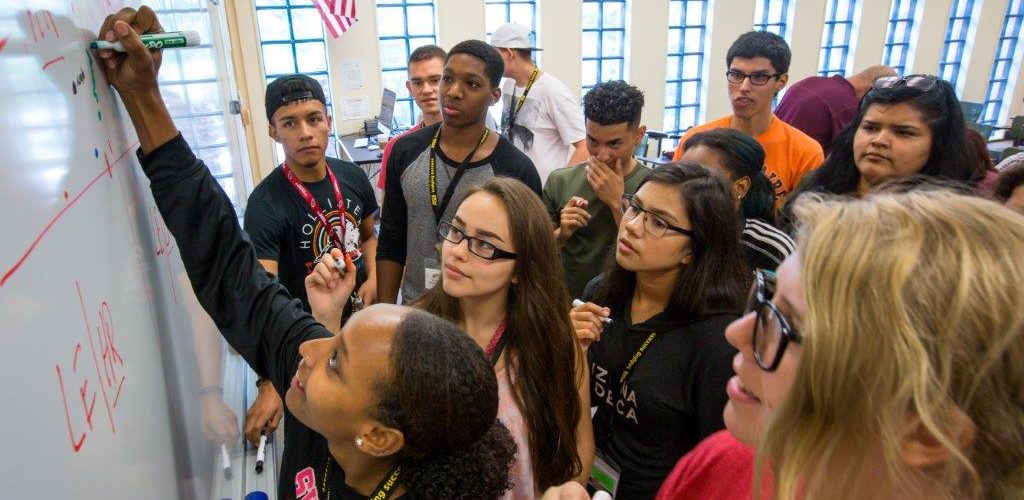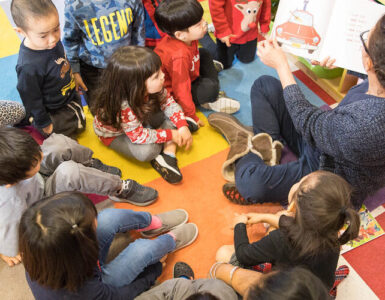Photo courtesy of ASU
College students who experienced foster care have to overcome a number of obstacles, and a community-building program at Arizona State University (ASU) is determined to help those students find the path to success.
According to the Education Commission of the States, only 46 percent of the 415,000 foster youth in care will earn a high school diploma. Less than 3 percent will obtain a bachelor’s degree.
In an effort to bridge the achievement gap underserved students face, Bridging Success Early Start at ASU provides a warm welcome and ongoing support to ASU students who experienced foster care.
“One of the things we’ve learned- and I think this is true for other underserved communities- is the importance of community, to not feel alone,” Jeanne Hanrahan, Bridging Success Early Start director, said. “I think we’re doing that really successfully here.”
Before the semester starts, the program welcomes the students to the Tempe campus to participate in workshops, prepare for the upcoming semester and create connections with other students, peer mentors and faculty.
Hanrahan said the students in the program “face many of the same challenges as other students, but in many ways it’s not uncommon for them to feel like they’re the only ones who came from a foster care program.”
The welcome program before school begins helps the students transition into university life, but it continues to provide support throughout their time as a student at ASU.
“We’re here for them throughout their stay. We do continue to have events and workshops during the year. We have a class that we teach, which is an academic success class, and we basically dedicate that section to youth who have experienced foster care,” Hanrahan explained.
In addition to the class, Bridging Success Early Start provides scholarship application workshops, mentoring and other programming.
While the current programming is helpful to the participating students, Hanrahan said it is important for the students to experience internships and other work-based opportunities before graduating.
“We are at the very beginning of exploring opportunities to help our youth get placed into internships. There’s huge potential for us to build relationships with the business community to help these young people take a step toward a professional career,” Hanrahan said.
Internships and other work-based opportunities help the students prepare for their future endeavors, but it can also benefit employers and Arizona’s economy.
“If the business community can help these young people have viable work lives then they are contributing to the economy of the state,” Hanrahan said.
She added, “They’re building our communities into stronger, safer places for people to live. And they’re contributing in that sense to the next generation of the families of these [students] who will benefit from their economic stability.”
















Add comment